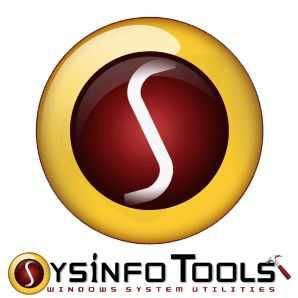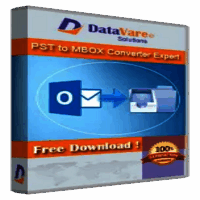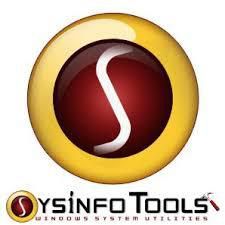Yes, utility software may typically be accessible from numerous devices and platforms, including Windows, Mac, and mobile devices. This makes it incredibly adaptable and easy for users. However, before purchasing or installing any software, always ensure that it is compatible with your specific devices and operating systems. This will ensure smooth operation and prevent any potential problems.
List of 20 Best Utility Software
WholeClear EML to PST Converter - a reliable and advanced tool for converting EML files to PST format. Designed for compatibility with all Windows and Outlook versions, this tool easily converts multiple EML files in one go. With a user-friendly inte...Read More WholeClear EML to PST Converter
SysTools OAB Recovery is a tool for backing up Outlook Offline Address Book (OAB) files. This software allows you to save OAB files in various formats like PST, PDF, CSV, and vCard (VCF), without the need for MS Outlook or Exchange Server on your com...Read More SysTools OAB Recovery
SysInfo PDF Recovery Tool solution for recovering damaged and corrupted PDF files! With this advanced tool, you can effortlessly restore all properties of your PDF documents, such as forms, headers, footers, clip art, word art, shapes, charts, and ta...Read More SysInfo PDF Recovery Tool
DataVare OST to PST Converter - and easy-to-use tool for converting Outlook OST files to PST format. With advanced features like automatic conversion and exchange data backup, this converter offers unparalleled convenience. Download the free trial ve...Read More DataVare OST to PST Converter
GainTools PST Converter is a trusted and efficient software designed to transfer Outlook data to multiple formats, including EML, EMLX, and MBOX. This tool enables users to export all their emails, along with their attachments and other information,...Read More GainTools PST Converter
MailsClick Convert PST File solution for converting PST files into various formats including MSG, MBOX, EML, EMLX, and VCF. Compatibile with popular email clients like Thunderbird and Mac Mail, this software ensures smooth conversion without any data...Read More MailsClick Convert PST File
DataVare PST To MBOX Converter is a solution for smoothly converting Outlook PST files into MBOX format, complete with attachments. This advanced software works seamlessly on both Windows and Mac OS, allowing you to access Outlook files on Thunderbir...Read More DataVare PST To MBOX Converter
MacUncle EML Converter solution for converting EML files into multiple formats like PST, PDF, EML, EMLX, and MBOX, along with attached documents. This software ensures accurate and seamless exporting of files while maintaining their data integrity. T...Read More MacUncle EML Converter
Oracle Utilities Network is a software that is transforming the energy industry. It offers unmatched efficiency and reliability, revolutionizing utility operations. With this innovative solution, utilities can effectively manage their grids and provi...Read More Oracle Utilities Network
iBoysoft Data Recovery for Windows - a versatile and trustworthy program engineered to recover lost or deleted data from all types of disk-based storage devices. This powerful tool offers a secure data recovery experience for Windows users, making it...Read More iBoysoft Data Recovery for Windows
SysTools vCard Export solution for managing and exporting Microsoft Outlook PST contacts. This powerful tool supports various export formats such as vCard, WAB, and Excel, enabling seamless transfer of contacts to Google, Yahoo, or a CSV file. With S...Read More SysTools vCard Export
SysTools OST Converter solution for converting Outlook OST files seamlessly into various formats like PST, EML, MSG, HTML, and PDF. With advanced features, this powerful tool can effortlessly convert even corrupted or orphaned OST files. It supports...Read More SysTools OST Converter
Birdie MDaemon Migrator solution for seamless migration from MDaemon Server to top email clients such as Outlook, Exchange Server, Thunderbird, Zimbra, Mac mail, and Windows Live Mail. Experience hassle-free transfer of all data including emails, con...Read More Birdie MDaemon Migrator
Siemens PLM Software is a premier provider of innovative product lifecycle management (PLM) and manufacturing operations management (MOM) solutions. Our robust PLM platform seamlessly connects and streamlines data, processes, and teams across the ent...Read More Siemens PLM
MailsClick Convert MBOX File is a software for converting MBOX files to Outlook PST format. Say goodbye to data loss worries and convert unlimited file sizes effortlessly. Download now to seamlessly transfer all your emails to Outlook without any res...Read More MailsClick Convert MBOX File
SysInfo Backup Exec Pro – solution for repairing BKF files created by Symantec Backup Exec and NT-Backup. With advanced recovery features, it can extract MS SQL server databases from BKF files, making it a valuable tool for data loss situation...Read More SysInfo Backup Exec
SysInfo Tools Maildir Converter is a reliable software designed to efficiently convert Maildir folders and sub-folders to popular file formats like Outlook PST, MBOX, PDF, HTML, EML, and MSG. With its advanced features, users can easily transfer thei...Read More SysInfo Tools Maildir Converter
our top-rated MSG to PDF Converter software, specially designed to simplify the conversion of MSG files to Adobe PDF. This advanced tool supports all Outlook versions including 2013, 2010, 2007, and 2016 and ensures that attachments and images are pr...Read More MSG to PDF Converter
MailsClick Convert OST File solution for converting inaccessible data from OST files into different formats including PST, MBOX, EML, EMLX, VCF, and more. With its robust recovery engine, it can also restore deleted information from OST files. Say go...Read More MailsClick Convert OST File
CubexSoft Email Extractor - tool that enables you to effortlessly extract emails from various web-based email clients and cloud applications with utmost precision. With speedy extraction of emails from Office 365 and Exchange Server, convert them int...Read More CubexSoft Email Extractor
Learn More About Utility Software
- What Is Utility Software?
- What Are The Recent Trends In Utility Software?
- Benefits Of Using Utility Software
- Important Factors To Consider While Purchasing Utility Software?
- What Are The Key Features To Look For In Utility Software?
- Why Do Businesses Need Utility Software?
- How Much Time Is Required To Implement Utility Software?
- What Is The Level Of Customization Available In Utility Software?
- Which Industries Can Benefit The Most From Utility Software?
- Conclusion
What Is Utility Software?
Utility software, often known as system software, is a type of software used to maintain and improve the operation of a computer system. It covers a variety of tools and programs required for a computer's correct operation, including as disk management, data backup and recovery, security, and system maintenance.
One of the primary goals of utility software is to streamline and automate normal processes that might be time-consuming and tedious for users. For example, disk management software organizes and optimizes hard drive storage space, whereas data backup and recovery software guarantees that essential files are backed up and may be easily restored if necessary.
Security is also an important feature of utility software, with solutions available to defend against viruses, malware, and other cyber dangers. These utilities may scan and eliminate harmful files, as well as provide real-time security while browsing the internet or using other applications. Furthermore, system maintenance applications help keep a computer working properly by detecting and correcting any faults or problems that may arise. This may include defragmenting the hard disk, removing temporary files, and updating drivers and software.
In addition to these key functions, there are numerous more types of utility software on the market, each catering to a certain purpose or job. This includes tools for improving performance, cleaning up the registry, and compressing files. Overall, utility software is critical for keeping a computer system working smoothly and should be regarded a vital component of any software library. Whether you're a home user or a business owner, investing in high-quality utility software can save you time, boost computer speed, and keep it safe from potential dangers.
What Are The Recent Trends In Utility Software?
As technology advances, the demand for utility software has grown in recent years. This sort of software is intended to enhance system performance, automate operations, and increase overall productivity for both individuals and enterprises. With the ever-changing technological landscape, buyers must stay up to date on the latest developments in utility software to make the best purchasing selections.
We'll go over the latest trends in utility software that you should be aware of:
1. Cloud-Based Solutions: One of the most significant trends in utility software is the transition to cloud-based solutions. This allows customers to access their utility software from any internet-connected device, making it easier to manage and update activities and procedures while on the go. Furthermore, cloud-based solutions provide scalability and cost-effectiveness to enterprises, since they only pay for the services and storage they require.
2. Artificial Intelligence (AI) Technology: Another notable trend in utility software is the incorporation of AI technology. This includes automating and optimizing operations with machine learning algorithms and predictive analytics, so reducing time and increasing efficiency. AI-powered utility software may also analyze data to discover patterns and provide insights to help businesses make decisions.
3. Mobile Optimization: As more people use smartphones and tablets, utility software has become more mobile-friendly. Many utility software vendors now provide mobile apps or responsive websites so that users can access their software on their preferred device. This trend addresses the increased demand for flexibility and remote work.
4. Automation And Integration: Automation and integration are now common trends in utility software. APIs enable utility applications to smoothly interact with other critical tools, resulting in a more simplified workflow. This includes integration with widely used project management software, accounting software, and customer relationship management (CRM) systems.
5. Data Security: With the increase in cyber threats, data security has become a primary priority for both individuals and enterprises. As a result, utility software companies are putting data security first and introducing methods like encryption and multi-factor authentication to protect critical information.
Benefits Of Using Utility Software
Utility software, often known as system software, is a type of software that optimizes and improves the efficiency of a computer system. It contains a variety of tools and programs to assist users with activities such as file management and organization, system security, and overall system functionality.
Here are the top benefits to consider while choosing utility software:
1. Improves System Speed And Performance: One of the most important advantages of utility software is its capacity to boost system speed and performance. These tools can help you eliminate temporary files, free up disk space, and optimize system settings, resulting in a smoother and faster running PC. Users may keep their system running well and increase its lifespan by installing utility software on a regular basis.
2. Improves System Security: Given the growing number of cyber threats, having dependable security measures in place is critical. Utility software provides a variety of security capabilities, including disk encryption, malware protection, and firewalls. It continuously scans your system for weaknesses and notifies you to potential threats, giving you peace of mind while browsing the internet or downloading files.
3. Assists With System Maintenance: Regular maintenance is critical for keeping your PC in good shape. However, manual maintenance can be time-consuming and laborious. Utility software automates a variety of maintenance chores, including defragmenting hard drives, updating drivers, and controlling starting programs. This not only saves time and effort, but also ensures that your system performs optimally.
4. Offers Disk Cleanup And Organization: Over time, computer systems amass superfluous and duplicate files, resulting in cluttered and disorganized storage. Utility software provides tools for cleaning up and organizing files, making them easier to find and access. It may also locate and eliminate duplicate files, saving important disk space and increasing system performance.
5. Provides Data Recovery: Accidentally destroying vital files is a nightmare for any computer user. However, utility software frequently incorporates data recovery tools for restoring lost or deleted files. It serves as a safety net in the event of inadvertent deletions, system breakdowns, and other unanticipated events, ensuring that your valuable data is not permanently lost.
Important Factors To Consider While Purchasing Utility Software?
When selecting utility software, there are a few key elements to consider to ensure that you acquire the correct software for your purposes.
From functionality to pricing and customer service, here are the main aspects to bear in mind:
1. Functionality: The utility software's functionality is the most important thing to consider. You must ensure that the software includes all of the features and tools necessary for your specific requirements. Whether you need software for file management, system optimization, or data recovery, carefully review the features and ensure they meet your needs.
2. Usability: Utility software is intended to make your life easier; therefore it should be straightforward and user-friendly. To ensure a seamless user experience, choose software with an intuitive interface and easy navigation. You can also look at internet reviews or demos to get a sense of how usable the product is.
3. Compatibility: Before purchasing, make sure the utility software is compatible with your device's operating system. Check that the software is compatible with your operating system, whether it is Windows, Mac, or Linux, to avoid future compatibility difficulties.
4. Price: Utility software can range from free to pricey, depending on its features and brand. Before making a buying decision, consider your budget and compare costs from several manufacturers to discover the most value for your money. Keep in mind that high prices do not always imply higher quality, so do your homework before making a selection.
5. Client Support: If you run into any problems or have queries regarding the product, dependable client service is crucial. Look for firms who have many support channels, such as live chat, email, or phone, and have a strong reputation for answering customer questions.
6. Security: Because utility software frequently handles sensitive data, it is critical to choose a reputable and secure brand. Look for software that includes superior security features such as data encryption and malware/virus prevention.
7. User Reviews: Reading user reviews is one of the most effective ways to receive an honest assessment of utility software. You can discover them on the brand's website, third-party review sites, and online forums. Pay attention to both favorable and negative evaluations to have a comprehensive knowledge of the software's performance.
What Are The Key Features To Look For In Utility Software?
When it comes to selecting utility software, there are a few crucial things to consider to guarantee you get the most bang for your buck. These aspects not only influence the software's performance but also decide its suitability for your individual demands and specifications.
Here are the key features to look for in utility software:
1. Compatibility: The first and most important consideration is if the software is compatible with your device and operating system. Make sure the program is compatible with your device to avoid compatibility problems and ensure smooth operation.
2. User-Friendly Interface: Look for utility software with an easy-to-use interface that has intuitive functions. A complex and confusing interface can make it difficult to use the product effectively.
3. Versatility: Given the ever-changing technological landscape, it's critical to invest in utility software that provides a wide range of features and functionalities. To optimize its utility, choose software that can manage several tasks and address a variety of problems.
4. Performance And Speed: Because the major goal of utility software is to improve your device's performance, it is critical to assess its performance and speed. To ensure that your device functions smoothly, look for software that can quickly scan, identify, and resolve issues.
5. Customization Options: Because each person's wants and requirements are unique, it is critical to look for software that allows for customization. This allows you to customize the software based on your individual requirements and tastes.
6. Security And Privacy: Because utility software has access to sensitive data and files, it is critical that the program has strong security and privacy safeguards in place. Look for software that uses encryption and includes features like file shredding to secure your data from hackers and cyber attacks.
7. Customer Support: Technical challenges and troubleshooting may happen when utilizing utility software, thus it is critical to have dependable and accessible customer assistance. Look for software that provides multiple channels for customer service, such as email, phone, and live chat.
Why Do Businesses Need Utility Software?
Utility software is a sort of computer program that includes necessary tools and operations to help businesses run smoothly and efficiently. It provides a wide range of features and services tailored to the needs of businesses, making it an essential investment for any firm. First and foremost, businesses want utility software to maintain and improve their computer systems. This covers activities like disk cleanup, system updates, and anti-virus protection.
Businesses that keep their systems functioning smoothly can reduce downtime and avoid costly technical difficulties that could disrupt operations. Additionally, utility software can boost a company's overall productivity and performance. For example, file compression software can reduce storage space and speed up file transfers, but data recovery software can recover lost or corrupted files, saving time and resources.
Furthermore, utility software has critical security capabilities that protect sensitive corporate data from cyber attacks. This includes firewalls, spam filters, and data encryption tools, which are all critical in protecting against data breaches and cyberattacks. Utility software provides data backup and recovery solutions to businesses that handle a big volume of data, preventing data loss and ensuring business continuity.
In the event of hardware failure or human error, these technologies help restore crucial data and reduce the impact of disruptions on corporate operations. Furthermore, utility software provides simplicity and flexibility to firms functioning in a fast-paced, ever-changing environment. Remote access and virtualization enable businesses to access and manage their files and programs from anywhere, at any time, enhancing productivity and flexibility.
How Much Time Is Required To Implement Utility Software?
The time required to implement utility software varies according to a number of factors. These may include the complexity of the software, the size of your firm, and the degree of customization required. The implementation procedure can last anything from a few days to many weeks. First and foremost, extensively examine and assess the utility software options available to determine which one best meets your requirements.
This could take anything from a few days to a week, depending on the scope of your study. After you've chosen the program, the following step is to set it up and configure it for your organization. This may include entering data, creating user accounts, and configuring the software to meet your individual needs. The time required for this stage will vary depending on the intricacy of the software and the amount of data to be entered.
Some instances can be completed in a week, while others may take many weeks. You may also need to teach your personnel how to utilize the utility software properly. The length of this training time varies according to the intricacy of the software and your employees' familiarity with similar products. It might last from a few days to several weeks.Finally, the implementation process may include testing and troubleshooting to confirm that the software is working properly and meeting your organization's requirements. This can take anywhere from a few days to a week, depending on how much testing is required.
What Is The Level Of Customization Available In Utility Software?
Utility software is an essential component of every computer system, providing tools for improving performance, protecting against cyber attacks, and automating common operations. One of the most important considerations when selecting utility software is the level of customization available. In this buyer's guide, we'll go over the many levels of customization available in utility software, so you can make an informed decision.
First and foremost, it is critical to recognize that each utility software offers varying levels of customization. Some may have a vast range of possibilities, but others may have restricted customization opportunities. As a result, it is critical to identify your specific requirements and select software that best meets them. At its most basic, utility software can be adjusted using user preferences and settings.
This covers language, layout, and color choices. These choices may appear small, but they play an important role in tailoring the software to your tastes and providing a more user-friendly experience. Moving on to more extensive customization possibilities, some utility software lets users write own scripts and commands, giving them complete control over the software's functionality.
This is especially useful for people with specific requirements or extensive technical expertise. Another level of customization offered by utility software is the option to create custom reports and alarms. This functionality is particularly valuable for firms that need precise information to monitor the health and operation of their systems. Users can customize the software's reports and alerts to match their specific needs, optimizing their monitoring operations.
Furthermore, many utility software packages include plugin or add-on capabilities, allowing users to tailor the product's functionality to their specific needs. For example, backup software may include a plugin for cloud storage compatibility, allowing users to select their chosen storage provider. Finally, certain utility software may offer limited or no customization choices. These programs are often intended for specialized purposes and have fixed settings that cannot be altered. While they may lack customizing options, they are frequently more straightforward and user-friendly, making them excellent for non-technical consumers.
Which Industries Can Benefit The Most From Utility Software?
Utility software offers benefits that are not limited to a single business. Indeed, every organization that relies on technology can tremendously profit from using utility software. However, applying these technologies might have a major impact on certain industries' operations and overall productivity.
1. IT And Technology: Utility software may considerably assist the IT and technology industries, which serve as the foundation of any technology-based organization. This includes network monitoring tools, data recovery software, and system optimization programs to ensure that their technology runs smoothly and efficiently.
2. Healthcare: In the highly regulated and data-driven healthcare industry, safeguarding and managing sensitive patient information is critical. Utility software, such as security software, file compression tools, and data backup solutions, can assist healthcare businesses in meeting regulatory requirements while also protecting sensitive data.
3. Financial Services: Due to the frequent usage of financial data and sensitive information, the financial services industry is vulnerable to cyber assaults and data breaches. Utility software like firewalls, encryption tools, and antivirus programs can assist protect their data and avoid security breaches.
4. Education: As technology becomes more prevalent in education, utility software can substantially benefit schools and colleges. This includes tools for maintaining student records, network security measures, and web filtering software to keep kids and staff safe while online.
5. Retail: In today's fast-paced and competitive retail market, managing inventory, processing transactions, and preserving customer data can be challenging. Utility software can let merchants focus on offering a seamless shopping experience for their customers.
6. Manufacturing: In the manufacturing industry, time is critical. Utility software, such as project management tools, inventory management systems, and production scheduling software, can help to streamline processes, decrease waste, and boost overall productivity.
Conclusion
In conclusion, investment in utility software can benefit both individuals and enterprises. Utility software enhances productivity, efficiency, and overall computer performance by offering a variety of essential features such as system optimization, file management, security, and more. Before making a purchase, you should identify your individual demands and select software that meets them.
Consider things like compatibility with your operating system, ease of use, and pricing alternatives. In addition, conduct extensive research and study reviews from previous consumers to guarantee the software's dependability and efficacy. Many companies provide free trials or demos, so take advantage of these to try out the program before making a purchase.
Finally, make sure to update and maintain the utility software on a regular basis to guarantee that it is performing optimally. With the appropriate utility software, you can simplify your computer usage and enhance your overall digital experience. We hope this buyer's guide has helped you make an informed decision about your utility software purchase.
Utility Software FAQ's
Can Utility Software Be Accessed Across Multiple Devices And Platforms?
Is Utility Software Future-Proof And Adaptable To Emerging Technologies Like AI, Blockchain Or IoT?
Utility software is built to serve a single purpose, making it easily adaptable to new technology. With the rise of AI, blockchain, and IoT, utility software developers are continually improving their products to remain competitive in an ever-changing digital market.
As new technologies develop, utility software will grow to become future-proof and capable of merging with these cutting-edge advancements. This ensures that customers may fully utilize the capabilities of these technologies via utility applications for optimal efficiency and productivity.
Is There A Free Trial Offered To Assess Utility Software Before Committing?
Yes, many utility software businesses provide a free trial period in which users can try the product before committing to a purchase. The period of the free trial varies based on the software, but it usually lasts between 7 and 30 days. This allows consumers to test the software's features and functionality firsthand and determine whether it satisfies their requirements. After the trial period, users can decide whether to purchase a complete license.
Does Utility Software Offer Data Security Features And Meet Regulatory Compliance Standards?
Yes, Utility Software frequently contains data security features like encryption, firewall protection, and virus detection to secure sensitive data. Furthermore, these software solutions are built to fulfill regulatory compliance standards like GDPR and HIPAA, ensuring that enterprises and individuals follow data privacy laws and regulations. This helps to avoid data breaches and ensure data integrity, giving users piece of mind.
Can Utility Software Integrate Seamlessly With Existing Tools And Platforms?
Yes, utility software can work perfectly alongside existing tools and platforms. This is because most utility software is designed to be compatible with a variety of operating systems and to interact seamlessly with other programs. Furthermore, many utility software packages have customization possibilities, allowing users to link it with their preferred tools and platforms for increased functionality and efficiency.






















